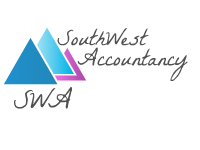Business News
Companies House loophole exposes anti-money laundering failings
Accountants have expressed concern at a report which exposes a loophole in anti-money laundering regulations that allows criminals to incorporate directly with Companies House.
Transparency International’s new research, Hiding in Plain Sight, found that 766 companies registered in the UK have been directly involved in laundering stolen money out of at least 13 countries. One of the main points of frustration for accountants reading the study is that the majority of these illegal funds are allowed to flow through the country as the result of a loophole in the government’s own rules.
Due to the anti-money laundering directive introduced this year, anyone wishing to form a company by visiting an accountant, solicitor or formations agent (classified under the ‘Trust and Company Service Providers’ (TCSP) umbrella), must fulfil due diligence requirements, including having their identity confirmed. However, as the government’s official registrar, Companies House is exempt from the rules as it occupies a statutory role to register businesses and issue incorporation certificates, and does not operate as a business itself. The result of this is that by registering directly with Companies House, a company is free to set up without being identified.
According to Richard Osborne, managing director of eFiling, what this means is that “in just one visit to the government website, fraudsters using a throwaway email address can create a company and funnel their illicit finance through without any appropriate legal checks. All that is really required is a valid UK address and the name of a fictitious company director.”
David Stevens, integrity and law manager at the ICAEW, told AccountingWEB that this is something the Institute has been concerned about for some time. “Regulation in the private sector is being ramped up, with TCSPs, accountants and other service providers diligently carrying out the checks required by law,” said Stevens, “and yet there is a ‘no-questions-asked’ approach when you go to Companies House directly.
Six staff for four million companies
One of the main concerns voiced about the current system is the lack of checking around incorporation application. Companies House software only checks that the forms are completed, not whether the application is a true and accurate reflection of the person(s) applying. “As far as I understand it there isn’t even a sense-check as such,” said Stevens. “The phrase ‘check the integrity’ has been used previously, but I believe that simply means ‘have all the boxes been filled in?’”
However, Transparency International’s report flags up the fact that at Companies House there are currently only six members of staff responsible for policing over four million UK companies. Research from campaign group Global Witness last year also flagged up some peculiarities on the people with significant control (PSC) register itself. When trying to establish the beneficial owners of companies the NGO found co-owners with dates of birth years into the future, people with countries of birth registered as ‘Cornwall’ and other similar anomalies.
Rules a ‘missed opportunity’
For the ICAEW’s David Stevens the new rules are a missed opportunity. “If there was more resourcing at Companies House there would be huge potential to save a huge amount of duplicated cost and effort,” he said. “When entering into a transaction that might involve an accountant, solicitor and formations agent, all three entities have to do exactly the same checks: most likely at the cost of the person entering the transaction. A reformed Companies House could be the perfect mechanism to wipe out this duplicated cost.”
One approach suggested by last year’s CCAB ‘Fighting Economic Crime’ manifesto was to harness and expand the public registers of company ownership and beneficial interest held at Companies House. “No checks are currently carried out on the identity of those wishing to set up a company in the UK,” stated the report. “A reformed and well-resourced Companies House regime could be the perfect mechanism for filling that due diligence gap and, in so doing, creating a single, centralised online information resource which banks, accountants, lawyers and other businesses could also consult to confirm identity.”
Reform is unlikely
While Stevens believes the loophole is “on the radars” of professionals familiar with the regime, many other people would be surprised at the ease a company can be set up, “particularly when we hear so much in the press about money laundering and economic crime”.
However, it appears unlikely that the loophole will be closed anytime soon. “Companies House needs considerably more resource than there is now,” said Stevens. “In a climate when more and more cost being pushed onto the private sector, whilst it might be operationally straightforward, politically and financially this is likely to be a bit more difficult.”







